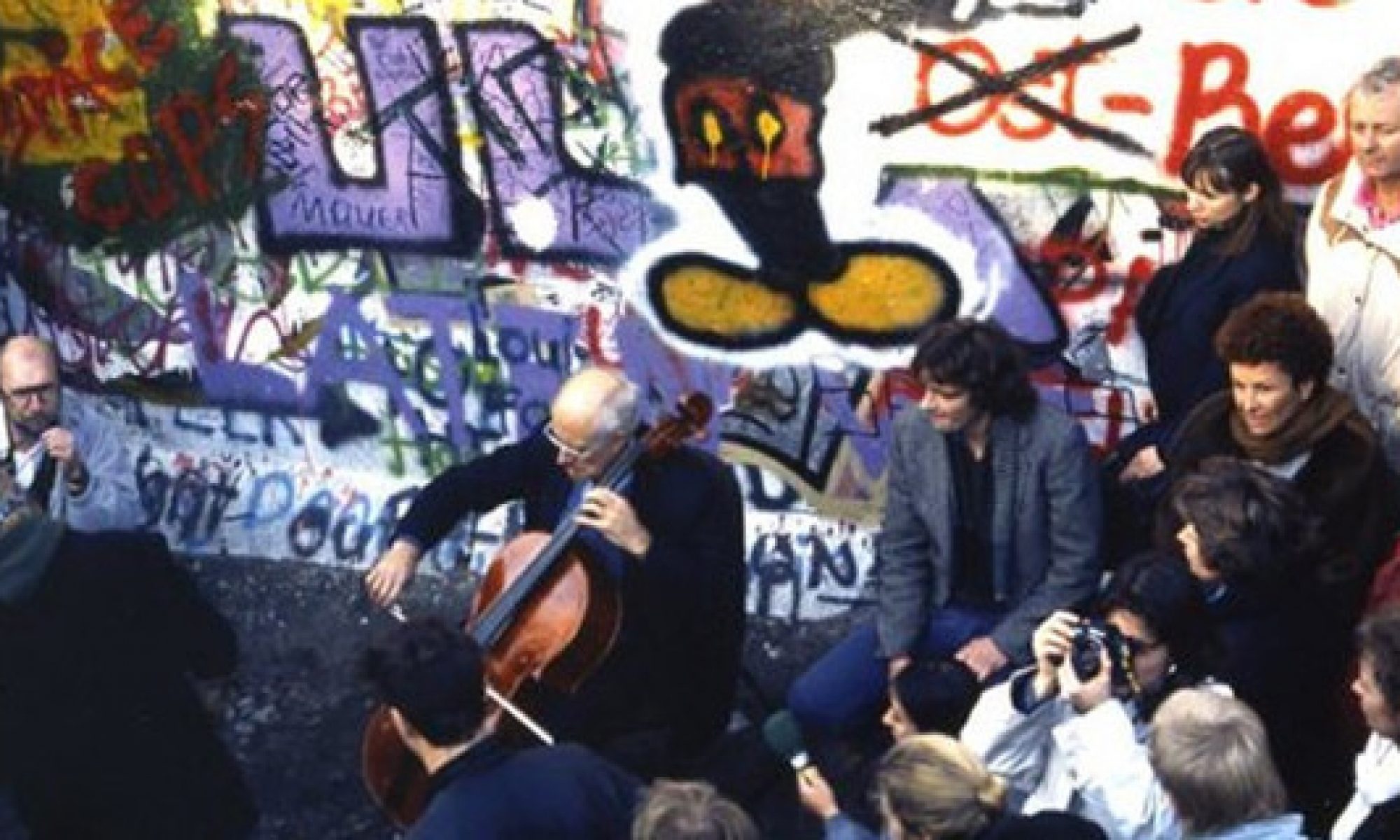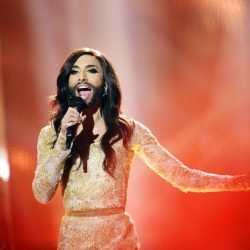I think that the punk genre is really fascinating because it gives freedom to its artist to express themselves completely unfiltered, in a way in which I think other genres do not. Pussy Riot is a perfect example of a punk group who catered to the fan base in Russia who wanted to see a change in their oppressive homeland. The Pussy Riot was an integral part of the protests happening in the country. I think that their group, in particular, brought people together, and helped to facilitate change by bringing music together with songs that were obviously provoking. The song “Putin Will Teach You How to Love” is a perfect example of a politically provoking song. The lyrics describe how Russian people are mistreated, mentioning the LGBTQ+ community especially, and how they are conditioned to “love” the motherland through fear and punishment. I think that “love” here is being used as synonymous with obeying. In the video, for the song, we can clearly see that Russian police officers are brutalizing the people, but in other shots, the singers are standing by the Olympic symbol and dancing with people in animal costumes. I think it would be interesting to discuss the significance of this artistic choice in class. Although I use the term artistic here cautiously because critics still debate whether Pussy Riot is an authentic punk band. I would like to get back to our discussion of authenticity but now in relation to Pussy Riot. Also, I think it would be fun to discuss what David Bowie would think of them.


Music and Politics in 20th c Europe (HIST 315 F19)
Sing the song of your people!
The amount of censorship in current Russia and the cult of personality behind Putin is concerning. I find it ironic that even after the fall of the Soviet Union, which restricted personal freedoms and had similar personality cults, the Russian people still strove for a unifying figure (not all Russians thought this was a good idea. But, Putin still gained enough influence to be in power for as long as he has). I was shocked when Garrels mentioned the repression on pages 34 and 35 – that in terms of revealing sensitive government documents, the 90’s was the era of “openness.” Now, the information could be granted to someone, but not without some interrogation and the stripping away of freedoms, such as air travel.
The frustrations felt by Pussy Riot and the Russian Airborne band are justified. I would argue that they are aware of their oppressive past and of the freedoms enjoyed by other nations. They feel as if yet another cult of personality behind a man propped-up to be some kind of god is an obsolete way to run a government. However, clearly this isn’t so clear-cut, with some having great faith in Putin as a leader. He evokes a sense of strong pride in his people after the feeling of belittlement from America after WW2 (the lack of true winners or losers, rather it was a series of complex negotiations – but America boasting they had won upset the Russians).
I definitely found Putin and the police’s response to Pussy Riot similar to one that would’ve been made years before by the Soviet Union. It is as if Russia is under the guise of a western style democracy but is still inhibiting opposition through preventing this kind of freedom of speech. As such, we see Pussy Riot performing in colorful masks and clothing similar to how we saw Russia find a fascination in American style before and imitate its bright colors, another way to demonstrate their dissent. It seems as if these patterns of western fascination and subsequent government action are repeating themselves despite the form of government, whether we are in the Soviet Union under Stalin, during de-Stalinization, or as their current state under Putin. What is happening in Russia now is similar to that of other Soviet satellite states where the government effectively crushes dissidence through these strong-arm techniques. This current action correlates with the Soviet history and the mentality (any statement against the country was a threat to leadership one that could not be held) that was created during that time.
Pussy Riot makes a spectacle of their performances. They intentionally go to places where they know the authorities or the media will be. This is brilliant! Thinking back to the Sex Pistols, I think they and Pussy Riot have the same mentality: This s**t ain’t right and we are gonna yell about it. I feel that is inherently a punk tenant, but I really enjoy how both of these group use the media circus that accompanies national or international celebrations to get their point across. For the Sex Pistoles, they got shut out of the Jubilee. Pussy Riot succeed and got carted away from the Olympics.
As I was reading for class today I couldn’t help but think of the Sex Pistols as well. Both groups have an interesting relationship to the media. However, I think that Pussy Riot’s interactions with the media are calculated and purposeful. In my opinion they are activists first and artist second. Whereas the Sex Pistols interaction with the media is much more of an artistic performance. Thinking back to their interaction with the host of the talk show. They only really began to act out of turn once the host provoked them a little, and the host of course did this for his own gain. I think that the comparisons you made between these two groups are interesting, and I would be curious to further discuss Pussy Riot’s relationship with the media compared to other artist’s like the Sex Pistols or David Bowie.